 Q: What has been the most surprising thing about being back in school?
Q: What has been the most surprising thing about being back in school?  Q: What has been the most surprising thing about being back in school?
Q: What has been the most surprising thing about being back in school?
A: The most surprising thing back at school has been … me! After I finished my undergrad degree, I swore that was the last formal education program I would do. Now 6 years later, I realize I didn’t appreciate the things that higher education offers, such as open-minded discussions, a constant stream of new and exciting stimuli through movies, readings, and class discussions, and the spirit of potential that permeates campus. I recently attended my first on campus class at UNC (online student, hah) in August and I was surprised to realize I really missed that feeling of people and resources set aside just to learn and grow.
Q: How has your perception about the MPA changed since starting?
A: I chose the MPA@UNC program because I knew I needed a professional degree, and I wanted a program which would carry weight and respect in my area and field of study. I came into the program knowing this would be hard work, but that it would be a degree worth earning. Since Jan (when I started) I am just starting to learn all the other things UNC offers aside from the rigorous and respected curriculum; the opportunities. With the mentor program, the extracurricular discussion groups, and engaged faculty and staff, I truly am learning that this program is really shaping me and supporting me in my journey to become a better leader.
Q: What has required the most adjustment since being back in school?
A: The last time I was in school I worked a couple days a week at a coffee shop, and took a full course load on my days off. This time around I’m working Monday through Friday and taking classes in the evening, so that has been a shift in my scholastic experience. Giving up my personal time in the evenings and some weekend hours has certainly been an adjustment.
Q: What classes are you enrolled in this Fall?
A: This semester I’m taking PUBA 710 – Organizational Theory and PUBA 719 Public Administration Analysis and Evaluation 1. Organizational Theory has been interesting because I’ve been able to see how the social mindsets of generations have influenced theories about productivity and it’s giving me a sense of how contemporary generation’s values and mindsets may help me to create the type of work environments they prefer. Analysis and Evaluation has been heavy reading, but I’m really enjoying learning about the academic case study and research process in a formal process. Research has always been an implied skill with other classes, but discussing the process in a formal setting is helping me fill in the cracks for the habits I developed in my undergrad days.
Q: Do you have a favorite moment of the program so far?
A: My favorite moment so far, is a bit of a culmination moment. In April a few students put together a meeting with other MPA students interested in pursuing Arts related careers. I was able to attend the conversation, and I reached out to the three students who organized it to thank them for putting it together. In August I attended my first on campus class and when I walked into the room I saw so many students I knew already! There were classmates from the several classes I’ve taken online and even a couple of the student organizers from the Arts Conversation. It was a small thing, but it really solidified my feelings and experiences at UNC so far, and it was a nice way of realizing, this really is where I belong.
A couple of weeks ago, we had 22 bright and eager students begin our online MPA program, and we couldn’t be more excited to introduce them to you. With most of them averaging 10 years or more of work experience and 27% of them holding advanced degrees, we are proud to be the next step in their personal and professional journeys.
As always, we like to showcase the breadth and diversity of our cohort in terms of backgrounds, interest areas, diversity, and interests. Here are a few of their noteworthy mentions:
1 international student joining us all the way from Jakarta, India
1 Superior Court Judge from California
1 Police Lieutenant from the City of Portland, OR
4 practicing attorneys
4 health care administrators (UNC Health Care and University of Pittsburgh Medical Center, Indian Health Service, and United Network for Organ Sharing)
1 Local Government Employee Match Scholarship Recipient
5 currently working for the federal governemnt
2 Active Military
1 Marine Biology Educator
Obviously, this list is not exhaustive. We are so excited to have all 22 of you, and we promise you’re going to gain so much from this program.
Applying to grad school is a big decision in and of itself, but doing so in the midst of a pandemic and the state of our world brings a whole new level of commitment. While some might find themselves with more time to research graduate school and apply, I suspect many of us are still having a hard time focusing on a big thing amidst all of the chaos and uncertainty.
One thing is for certain, never has there been a more critical time for good public administrators and for people to believe in the power of good public administration. Over the last year, we have seen this at the state and federal levels of government with respect to the pandemic and a public health crisis and economic shutdown. And we have seen it at the local level of government with the focus on fair and equitable law enforcement and public safety issues.
So, we are thankful for all the public administrators out there doing their job well. And we are thankful to our newest MPA students for their drive, tenacity, and interest in making better communities! Good luck and welcome to the Carolina family!
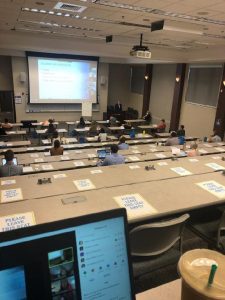
Our 1st year residential students gather for a socially distanced orientation.
Hi again,
With the beginning of a new academic year comes new experiences and people. This is particularly true for the MPA program’s first-year ‘residential’ students (residential being in quotation marks due to the ongoing pandemic which is keeping us from being truly in-person), which is why I wanted to take some time to introduce you to this cohort.
The incoming class is one of the largest and most diverse that the residential program has welcomed in years, with 28 students joining UNC’s MPA network exemplifying various academic backgrounds and career interests. The cohort is representing 18 different undergraduate institutions including, UNC-Asheville, N.C. State University, Vanderbilt, Clemson, University of Kansas, and others. To accompany these undergraduate institutions, these individuals are bringing a wide variety of academic backgrounds to the classroom with undergraduate degrees in Political Science, Sociology, Psychology, Sport and Entertainment Management, Civil Engineering, Physics, Philosophy, and more.
While there is a large number of students joining the program from various undergraduate universities, another interesting characteristic of this class is that it contains our largest number of graduates from UNC-Chapel Hill. We have 9 students who are continuing their time as a Tar Heel in this cohort. Among the nine, 3 students are pursuing the Environmental dual degree that UNC offers. In looking at North Carolina as a whole, there are 12 additional students continuing their education within the program after receiving their undergraduate degree from an in-state institution.
Along with the rich amount of in-state representation in this cohort, there is significant number of students welcomed to the program from outside of North Carolina. Roughly a third of this cohort consists of out-of-state students. These individuals are bringing their passions from states such as Florida, Georgia, Kansas, Massachusetts, Pennsylvania, South Carolina, and Virginia.
While this semester looks a little different due to COVID-19, we are so proud of how well the first-year students are transitioning into this virtual learning environment. With most of the students averaging over three years of professional experience already, the passion and motivation for public service is tangible among this cohort. We are very happy to have these students providing insight from their experiences to make this program more enriching.
On behalf of the MPA Class of 2021, I would like to officially welcome each student of the first-year cohort to Carolina MPA. We are looking forward to providing support and getting to know each of you as we continue this year together! Remember that you have a purpose for being in this program, so let your values and passions guide you and you will make an impact!
Still trying to decide what type of graduate degree best suits you? Well, here’s a list of FIVE perks of pursuing a Master of Public Administration degree.
MPA programs don’t attract a “specific” type of student. There is no clear track to getting to this degree. So that leads to a diversity of experiences and backgrounds that may be interested in this degree. Which also makes for interesting in-person or virtual classroom discussion.
If you are someone like me, I love learning! The great thing about an MPA program is that the coursework is not just about how to run public organizations. We study a variety of subjects ranging from law to human capital management to budgeting to leadership! You are challenged in different ways every day.
Leadership training was one of my favorite parts of the Carolina MPA program. Since MPA programs are expecting you to transition into the public sector and become leaders, coursework is typically focused on helping you hone that skill. In my experience, the coursework allowed me to reflect on the type of leader I am now and who I want to become in the future.
This degree opens doors to multiple leadership and management roles, while doing good. You can have a career in various levels of government, nonprofit, philanthropy, health care, or even a consulting firm. One of the things I am most excited about for graduating with this degree is the endless possibilities for my professional career.
As a public administrator, you get to give back to the community. You get to work towards solving complex problems affecting your neighbors. In my opinion, this is the best perk of all!
I hope these perks help you decide if an MPA would be a good fit for you!
If you are contemplating between an MPA and a JD, be sure to check out my two-part series blog here: MPA vs JD Part 1 and MPA vs JD Part 2.
Did you know that the MPA program offers a few weekend-intensive courses?
They sure do! The weekend intensive courses are called immersion courses. They are intended to allow collaborative learning between our online and on-campus students. You spend a few weeks before your weekend meet date doing preliminary work online, which can include reading, quizzes, and assignments. Then, once your meet time rolls around, you get the opportunity to meet up with online and on-campus students from Thursday night, and Friday and Saturday all day! All of this earns your 1.5 credit hours…crazy cool, I know!
Honestly, I had never heard of this until I came to the MPA program! On a whim last year, I decided to sign up for my first ever immersion course. Last year’s course was on Collaboration and Collective Impact. This year’s course is on Data Visualization. The course title is “Communicating Data for Public Impact.” It will be taught by John Quinterno.
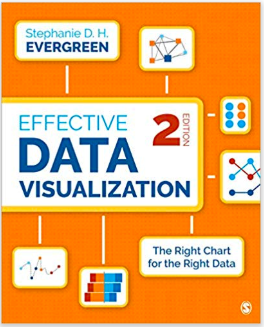
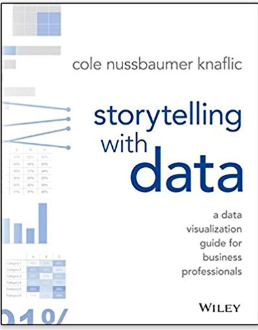
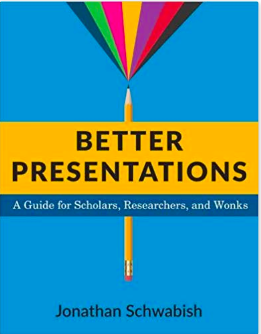
Here are the books that we are using for the course: Effective Data Visualization: The Right Chart for the Right Data by Stephanie Evergreen, Storytelling with Data: A Data Visualization Guide for Business Professionals by Cole Nussbaumer Knaflic, and Better Presentations: A Guide for Scholars, Researchers, and Wonks by Jonathan Schwabish
According to Quinterno’s syllabus, “Data Visualization has become the catch-all term used to describe the methods, techniques, and tools for organizing and disseminating the kinds of information common in public life in ways grounded in recent scientific insights.” He describes that this will be a skills-based crash course where we will cover how to develop clear messages, design effective visual representations of data, and create more effective oral presentations.
The books, so far, have been informative, light reads. I am excited to expand my skills base in an area that I know will only increase in demand. Plus, I will get to interact with the online MPA students that I don’t get to see very often. And one of the nights, we actually have a dinner/networking session with MPA Alum.
Needless to say, I am pretty excited about what I will learn in this course!
For a general overview of the MPA Immersion, click here.
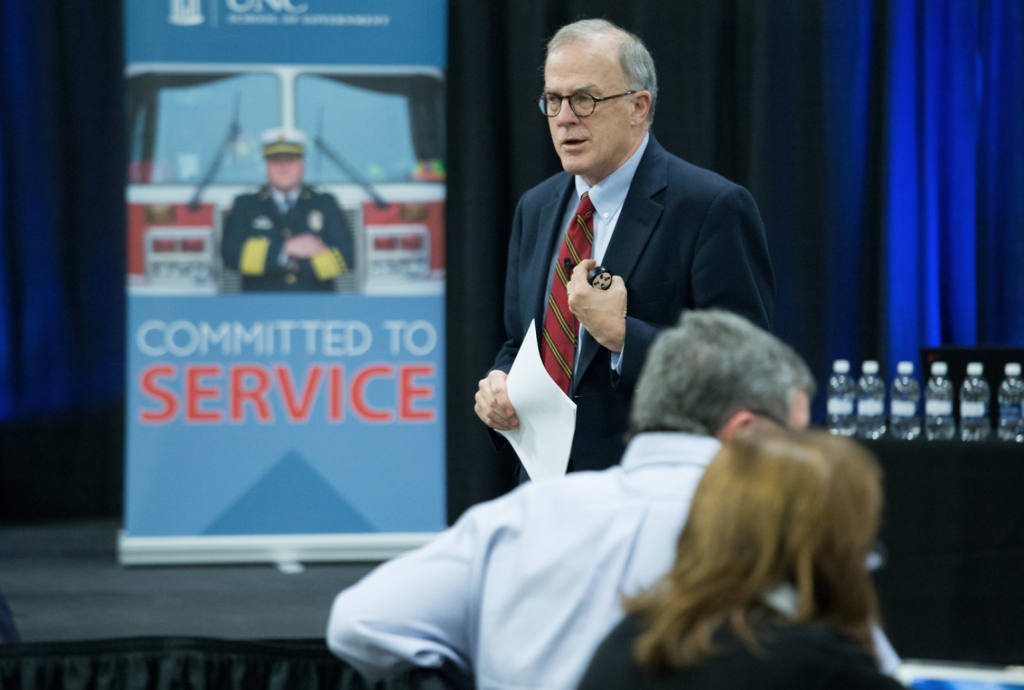
As strange as it may seem, I didn’t REALLY know what a MPA degree was until I landed the role of Director of Admissions for the MPA program at UNC. I am pretty certain I could have told you it stood for ‘Master of Public Administration’, but I couldn’t really tell you what that meant. Sure, I knew it was government related, but I thought it was a degree for someone who wanted to run for public office eventually. Sometimes they do, but it is so much more than that. And sometimes, it’s not even government related. (more…)
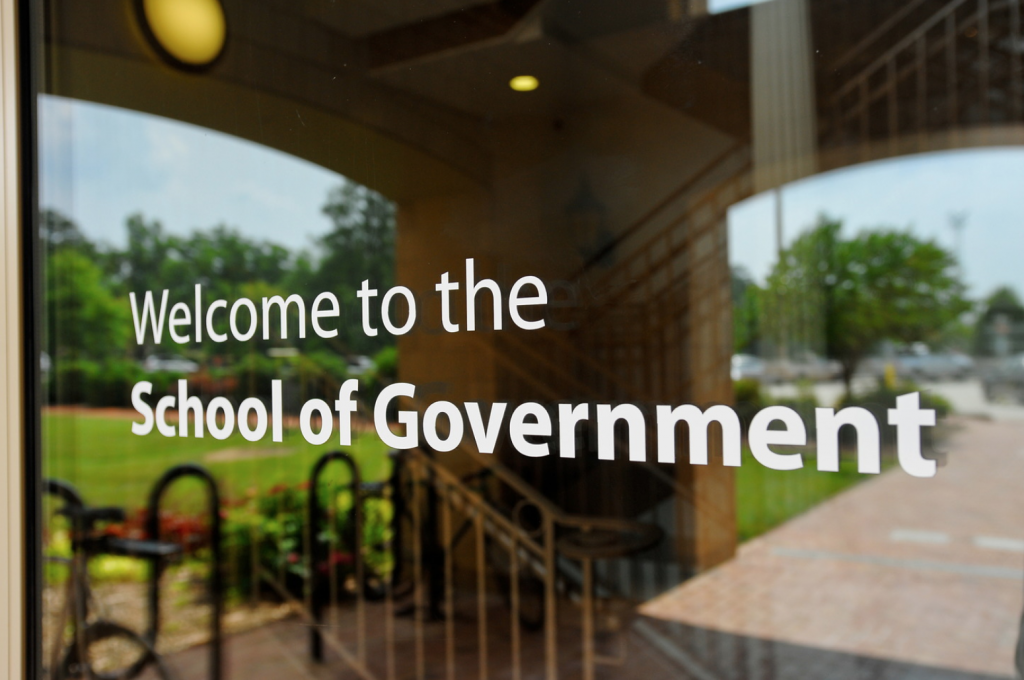
MPA Matters seeks to explore and explain all the current happenings and pursuits of those interested in public administration and public service. Special focus will be put on highlighting careers in public administration and the current initiatives of the MPA at UNC program including our faculty, current students, and alumni.